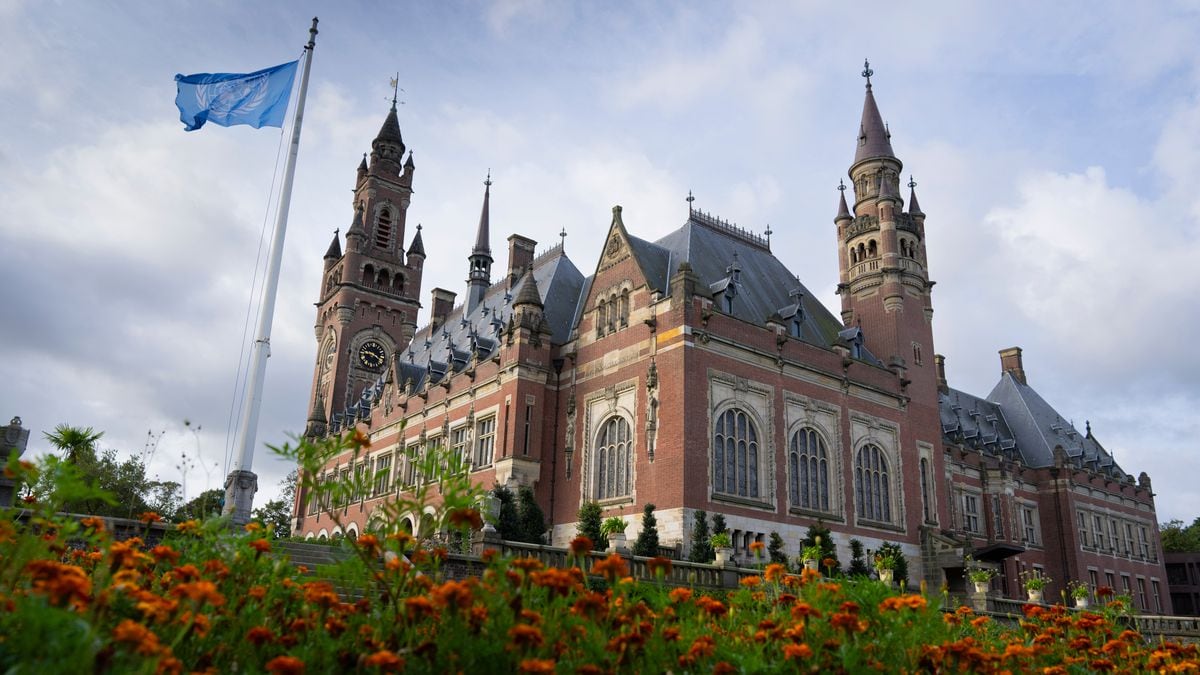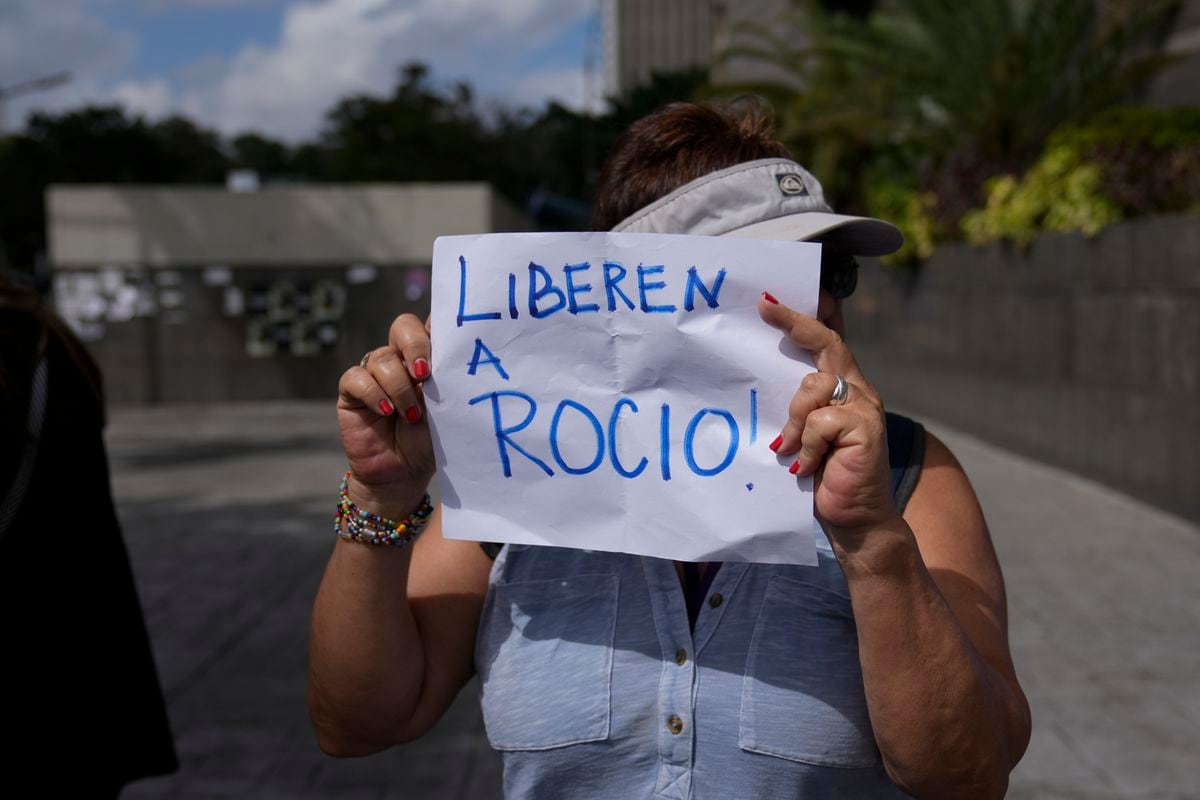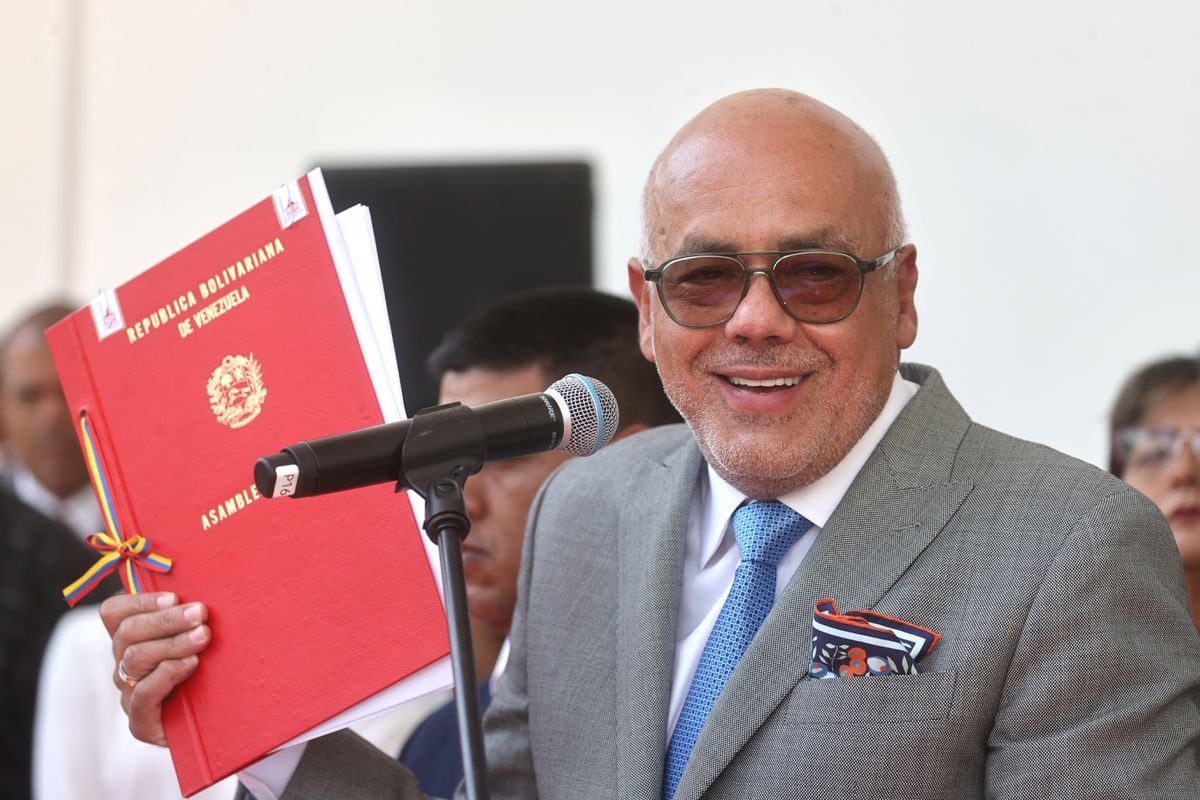Nicolás Maduro, upon his arrival at the La Guaira airport in Caracas, after arriving this week from a trip through Eurasia and AfricaZURIMAR CAMPOS (AFP)
In 2021 alone, the Venezuelan government had access to the content of calls, text messages and metadata – which could be mobile locations or names and surnames of subscribers, among others – of 1.5 million accounts or accesses of the private operator Movistar, according to a report by the Telefónica parent company in a recent transparency report.
The data illustrates what rights defenders call a massive espionage of people in Venezuela and is the first evidence of a practice that politicians and activists have been denouncing in recent years, the most authoritarian of Chavismo.
The alert was disseminated by the
Ve Sin Filter
organization as a threat to civil liberties and privacy.
More than 20% of the operator's telephone lines or internet accounts were tapped on the orders of a Venezuelan security agency, according to Telefónica balances.
“These interventions meant intercepting calls, monitoring SMS, giving the location of people through their cell phones or monitoring their internet traffic.
In the report, the other countries are not even close to 1%, ”warns the Ve Sin Filter statement.
"This is a disproportionate abuse of the practices of intercepting and obtaining metadata, just as perverse for human rights as the use of data," says Andrés Azpúrua, director of the organization, in an interview with EL PAÍS.
"This is massive and evidence of the espionage efforts of an authoritarian government."
The number of lines affected by interceptions increased seven times since 2016, when there were 234,932 reported by the company in its balance sheet.
The company details that in 2021 it received 861,004 requests from the government —of which it rejected just over 21 thousand— that affected 1,584,547 lines, so Azpúrua suggests that a request could involve several users.
The activist warns that although the data of other private operators such as Digitel and the state-owned Movilnet and Cantv are unknown, the number can be extrapolated.
Call intercept requests may have legitimate legal purposes for the investigation of a crime.
Human rights standards establish that it must be a strictly necessary, proportional resource, adjusted to laws and under a court order.
Movistar Venezuela reports to Telefónica that the requests have come from the Public Ministry, CICPC (the investigative police), police and military bodies "qualified to exercise powers in matters of criminal investigation" and, curiously, the National Experimental Security University (UNES). ).
In no case are there orders from judges or courts.
Another fact that Telefónica reports is the blocking of 30 websites by order of the National Telecommunications Commission, a systematic practice that the government of Nicolás Maduro has used to censor the media.
In Venezuela it is not possible to open the investigative journalism portal Armando.info without a VPN, nor is it possible to open El Pitazo, Cocuyo Effect or Runrunes.
Nor can you enter regional newspapers such as
El Tiempo
de Colombia.
According to the monitoring carried out by Ve Sin Filter, in 2021 at least 68 internet domains were blocked, of which 45 belonged to media sites, 3 to organizations that defend Human Rights and tools to evade censorship.
In 2020, Maduro's former intelligence chief, Manuel Cristopher Figuera, exiled in the United States, had already revealed in interviews that Chavismo's security apparatus used "private telecommunications companies to clone telephone numbers, tap emails, and take down web pages." .
This week, a human rights activist denounced in a hearing before the Inter-American Commission on Human Rights the advance of censorship in Venezuela.
"The spaces through which information is circulating: the Internet, social networks and applications such as WhatsApp are under attack," said Carlos Correa, director of Espacio Público.
So far, no government or company spokesperson in Venezuela has reacted to the complaints,
Follow all the international information on
and
, or in
our weekly newsletter
.


/cloudfront-eu-central-1.images.arcpublishing.com/prisa/B3UGIK2AZZFOZB7VSLLA5GPJM4.jpg)











